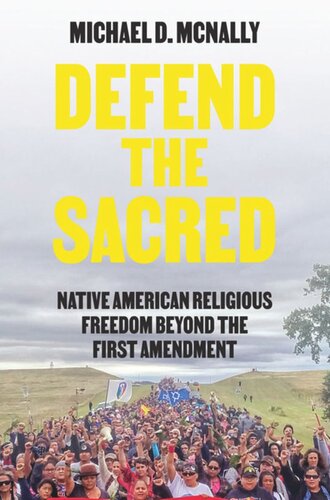

Most ebook files are in PDF format, so you can easily read them using various software such as Foxit Reader or directly on the Google Chrome browser.
Some ebook files are released by publishers in other formats such as .awz, .mobi, .epub, .fb2, etc. You may need to install specific software to read these formats on mobile/PC, such as Calibre.
Please read the tutorial at this link: https://ebookbell.com/faq
We offer FREE conversion to the popular formats you request; however, this may take some time. Therefore, right after payment, please email us, and we will try to provide the service as quickly as possible.
For some exceptional file formats or broken links (if any), please refrain from opening any disputes. Instead, email us first, and we will try to assist within a maximum of 6 hours.
EbookBell Team

4.8
14 reviewsThe remarkable story of the innovative legal strategies Native Americans have used to protect their religious rights
From North Dakota's Standing Rock encampments to Arizona's San Francisco Peaks, Native Americans have repeatedly asserted legal rights to religious freedom to protect their sacred places, practices, objects, knowledge, and ancestral remains. But these claims have met with little success in court because Native American communal traditions don't fit easily into modern Western definitions of religion. In Defend the Sacred, Michael McNally explores how, in response to this situation, Native peoples have creatively turned to other legal means to safeguard what matters to them.
To articulate their claims, Native peoples have resourcefully used the languages of cultural resources under environmental and historic preservation law; of sovereignty under treaty-based federal Indian law; and, increasingly, of Indigenous rights under international human rights law. Along the way, Native nations still draw on the rhetorical power of religious freedom to gain legislative and regulatory successes beyond the First Amendment.
The story of Native American advocates and their struggle to protect their liberties, Defend the Sacred casts new light on discussions of religious freedom, cultural resource management, and the vitality of Indigenous religions today.